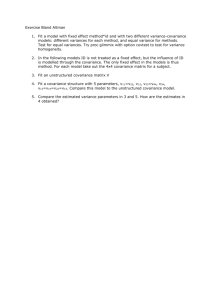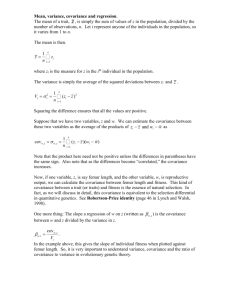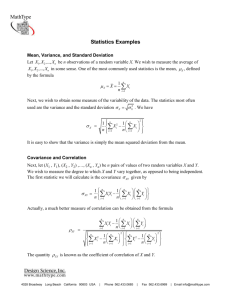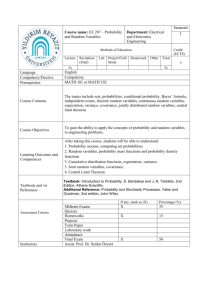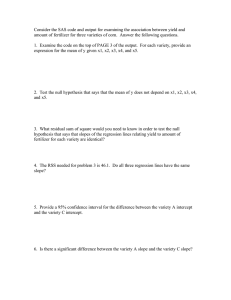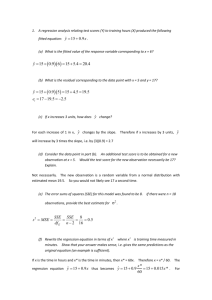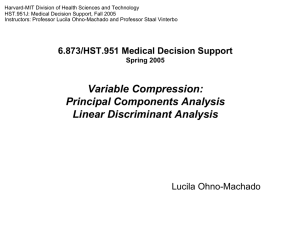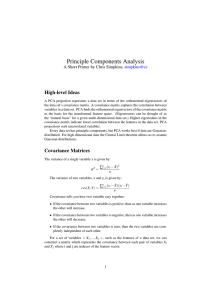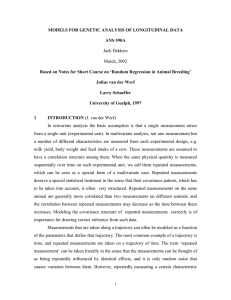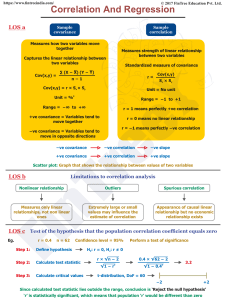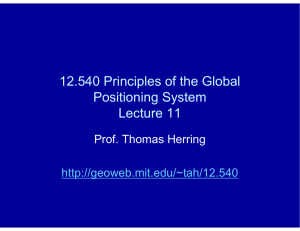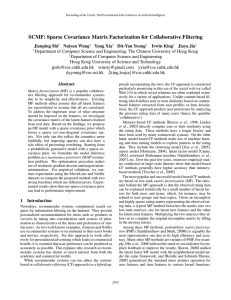Document 12126448
advertisement
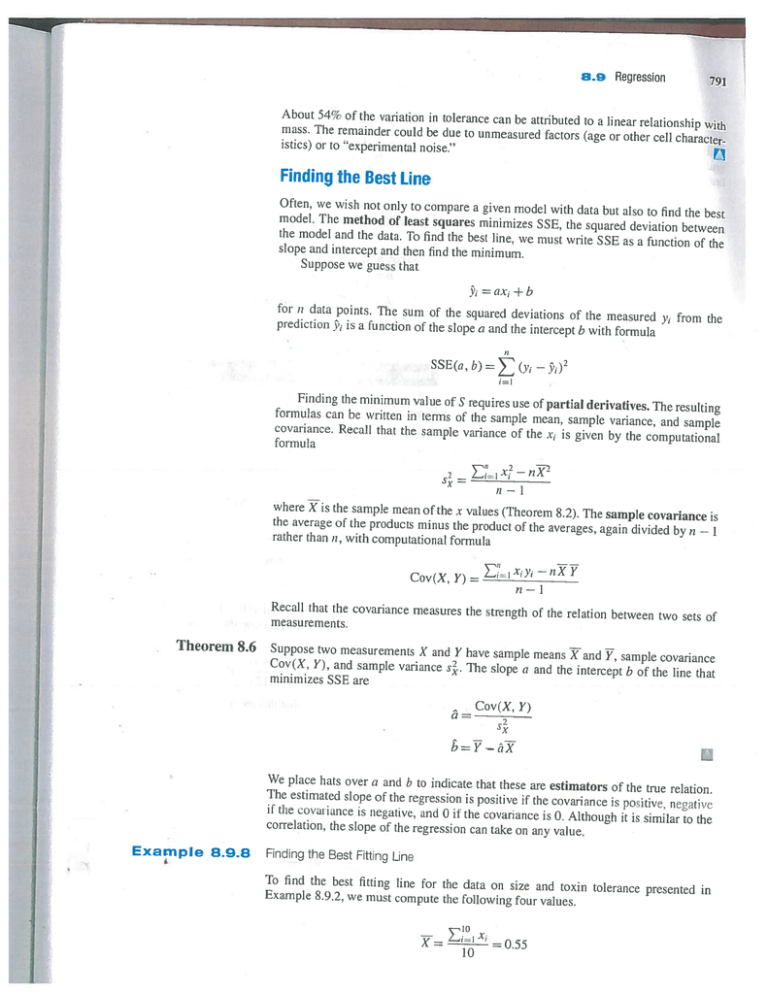
89 Regression 791 About 54% of the variation in tolerance can be attribu ted to a linear relationship with mass. The remainder could be due to unmeasured factors (age or other cell character istics) or to “experimental noise.” fl Finding the Best Line Often, we wish not only to compare a given model with data but also to find the best model. The method of least squares minimizes SSE, the squared deviation between the model and the data. To find the best line, we must write SSE as a function of the slope and intercept and then find the minimum. Suppose we guess that — ax + b for ii data points. The sum of the squared deviations of the measured y from the prediction 5’ is a function of the slope a and the interce pt b with formula SSE(a, b) (yi = — 5)2 Finding the minimum value of S requires use of parti al derivatives. The resulting formulas can be written in terms of the sample mean, sample variance, and sample covariance. Recall that the sample variance of the x is given by the computational formula 2 E — X nX — u—i where Xis the sample mean of the x values (Theorem 8.2). The sample covariance is the average of the products minus the product of the averages, again divided by n 1 rather than n, with computational formula — Cov(X, Y) xiyi — = 11 1 Recall that the covariance measures the strength of the relation between two sets of measurements. — Theorem 8.6 Suppose two measurements K and Y have sample means Xand Y, sample covariance Cov(X, Y), and sample variance s.. The slope a and the intercept b of the line that minimizes SSE are a= Cov(X, Y) 2 sx We place hats over a and b to indicate that these are estimators of the true relation. The estimated slope of the regression is positive if the covariance is positive, negative if the covariance is negative, and 0 if the covariance is 0. Although it is similar to the correlation, the slope of the regression can take on any value. Example 8.9.8 Finding the Best FitUng Line To find the best fitting line for the data on size and toxin tolerance presented in Example 8.9.2, we must compute the following four values. -= > 10 = 0.55
